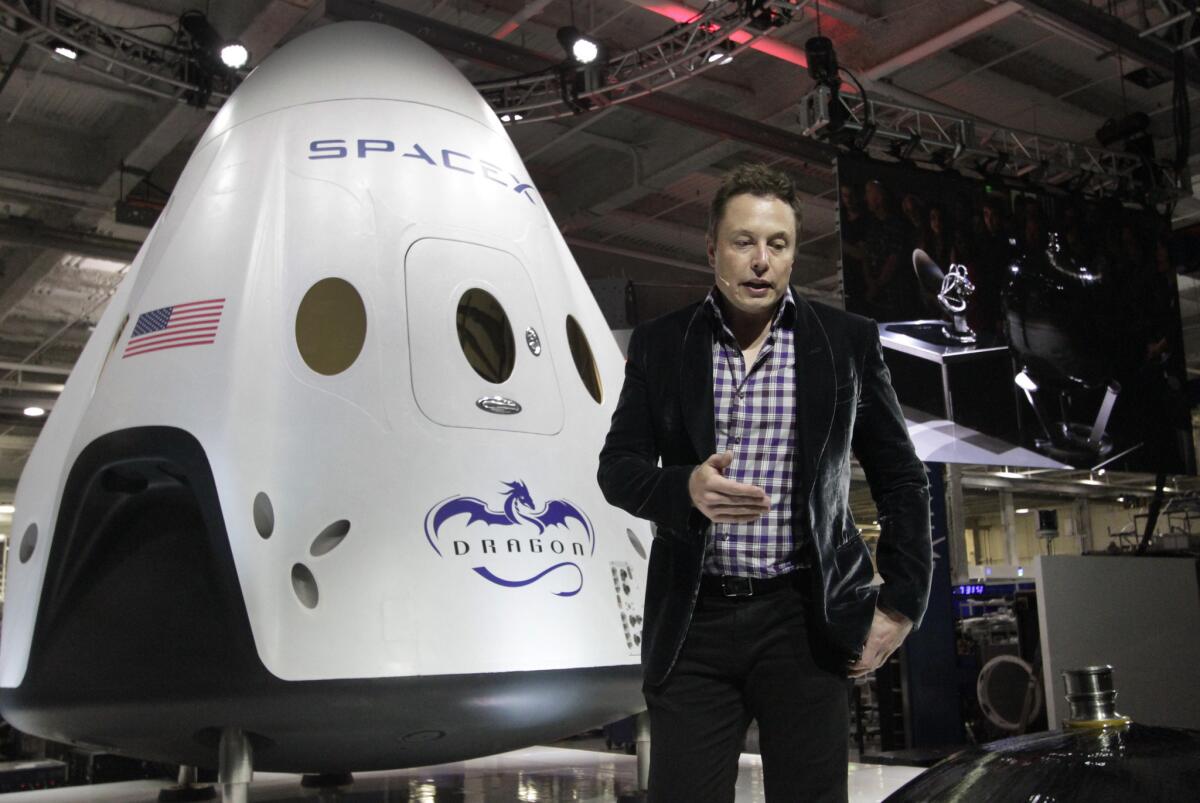Google may invest in SpaceX to back Elon Musk’s satellite project

- Share via
Google Inc. is considering making a big investment in Elon Musk’s SpaceX to support his ambitious plans to upset the satellite market.
SpaceX declined to comment on Google’s possible investment that could eventually lead to a low-cost global Internet service. Google did not return a message. But both companies have a similar visions for satellites.
On Friday night, Musk, SpaceX’s founder and chief executive, detailed his plans to create a constellation of 4,000 small satellites — double the number of satellites now operating — during a talk in Seattle, where he plans to base the project.
“It’s like rebuilding the Internet in space,” Musk told a crowd at the Seattle Center. The project, he said, would cost $10 billion to $15 billion.
News of Google’s interest in SpaceX, also known as Space Exploration Technologies Corp., was reported Monday by the technology blog The Information.
The deal would value SpaceX, a private company that makes its rockets at a factory in Hawthorne, at more than $10 billion, the report said.
Giles Thorne, a telecommunications analyst at investment banking firm Jefferies, said a partnership between Google and SpaceX makes sense. Google has already invested in other technologies, including fleets of drones and balloons, that could one day expand Internet service to remote parts of the planet.
In 2013, Google hired Greg Wyler, a satellite executive who has long been working on a satellite constellation that is similar to what Musk has outlined.
Wyler recently left Google and announced last week that his venture called OneWeb had received funding from British billionaire Richard Branson’s Virgin Galactic and from Qualcomm Inc., a San Diego computer chip manufacturer.
In an email, Thorne offered this analysis of Google’s interest in a global Internet service: “They obviously want to get as many eyes as possible on the Internet so they can weave their ‘black’ magic of turning user data into dollars.”
The competing satellite Internet projects by SpaceX and OneWeb have many skeptics. Other companies have tried to build a similar space-based global Internet service before and found the cost far too high.
Musk said he planned to manufacture small communication satellites that could function like those that are much larger.
He estimated that SpaceX could have a working version of the satellite constellation in five years, but that it would be 12 or more years before it was fully capable of providing a global Internet service.
The project could slash the cost of high-speed Internet communication around the world, Musk said, and be “a real enabler” for people in poor countries.
Twitter: @melodypetersen
Sign up for breaking news alerts here.
More to Read
Inside the business of entertainment
The Wide Shot brings you news, analysis and insights on everything from streaming wars to production — and what it all means for the future.
You may occasionally receive promotional content from the Los Angeles Times.











